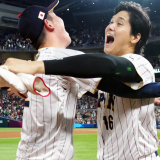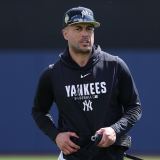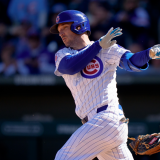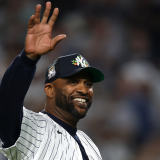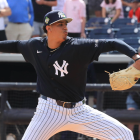Did Phillies err by not letting Lee (and his big money) go? It's not that simple
Cliff Lee makes too much money. The Phillies could have gotten out from under a bad contract by simply allowing Lee to go to the Dodgers on waivers. Except it's not that simple. It's possible that the Phillies made the right decision by keeping Lee, as they did Sunday.
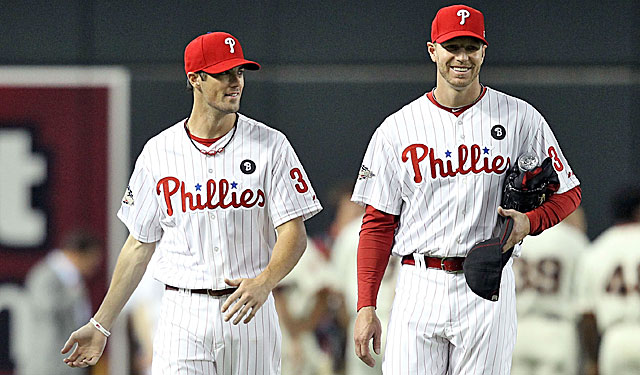 |
| With Cole Hamels locked up and if Roy Halladay's back healthy, the Phils have Big Three potential. (Getty Images) |
The logic seems so simple.
Cliff Lee makes too much money. The Phillies just had a chance to get out from paying Lee too much money. The Phillies passed. Therefore, the Phillies failed.
Simple, isn't it?
| More on Phillies |
| Stories |
Except that maybe it's not.
Lee does make too much money. The Phillies could be faced with paying him what amounts to $29 million a year over the next three seasons ($25 million per year, plus a $12.5 million buyout of a $27.5 million option for 2016) to an aging pitcher (Lee turns 34 this month).
The Dodgers put in a waiver claim on Lee, which means that the Phillies could simply have handed them the bad contract (as the Blue Jays once did when they allowed Alex Rios to go to the White Sox).
The Phillies decided against it. Lee pitched for them on Sunday, just after the deadline passed when he could have become a Dodger.
He'll stay with the Phillies the rest of the season, because he's now basically untradeable.
So what happens now, and how can this work out better for the Phillies than getting rid of a contract everyone agrees is too big?
There are two scenarios:
A. The Phillies keep Lee for 2013. They view what happened this year as a blip, and they intend to ride their three aces (Lee, Cole Hamels and Roy Halladay) back into contention next year. They retool the rest of the roster, using money saved on other expiring or disappearing contracts (Shane Victorino, Hunter Pence, Joe Blanton, Placido Polanco).
B. The Phillies shop Lee this winter, understanding that they'll likely have to pay some of the contract, but getting real (and real good) players in return. They save some of Lee's money, but do better with the players they get back in a trade than they would have done by simply having a lot of money to spend.
So why not just take all that money?
Well, no matter how much money you have to spend, it's not worth much if players who could help you aren't available. The Dodgers and Cubs have lots of money, too, but they don't have Cliff Lee (and as the Dodgers just proved, money alone wasn't enough to get them a Cliff Lee).
Even if the Phillies spent all of the money they would have saved on Lee (and that would kind of defeat the point), they probably couldn't have found a top-of-the-rotation starter like Lee this winter. So if the goal is winning in 2013, they probably have a better chance with Lee than without him.
Just because Lee is being paid too much doesn't mean the Phillies would have been better off without him. Albert Pujols is being paid too much, too, but it's fairly obvious now that the Angels are a better team with him than they'd be without him.
I'm still not sure whether the Phillies made the right decision on Lee this weekend. That question will be easier to answer when we know what the Phillies do with Lee this winter, and/or whether they win with him in the rotation next year.
No matter what, it's not simple.

